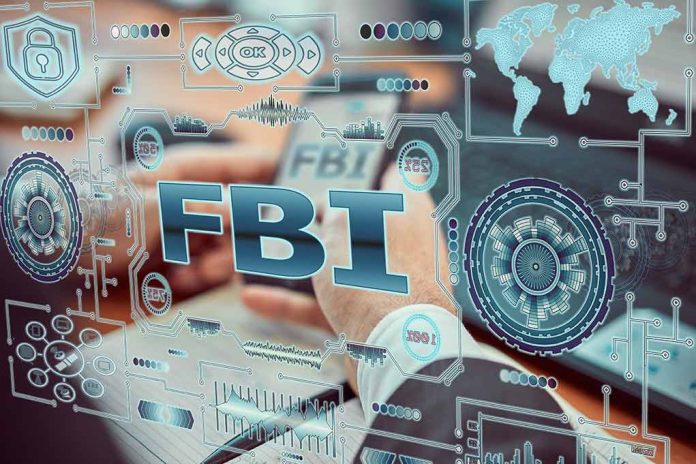
The FBI’s sustained efforts in reviewing Jeffrey Epstein’s child sex crime videos remain critical as investigations delve deeper, seeking more evidence and identifying individuals involved in one of history’s most appalling criminal networks.
Key Takeaways
- The Justice Department is swiftly reviewing Epstein-related materials for public release.
- The White House, under Trump, has ensured cooperation among agencies.
- Bondi and Patel advocate for revealing Epstein case details to achieve full transparency.
- Tweets and public pressure demand faster release of impactful information.
- Legal authorities faced setbacks over underestimated file contents leading to public frustration.
FBI’s Extensive Investigation Process
A critical phase in the FBI investigation of Jeffrey Epstein’s vast collection of child sex crime videos continues, as highlighted by Attorney General Pam Bondi. An urgent review of these files underscores a systematic approach to unveil evidence amid pressure for transparency from the highest echelons of government. With a comprehensive analysis ongoing, authorities hope to finally end a dark chapter by identifying perpetrators and strengthening justice for the countless victims who have previously been overlooked.
Approximately a thousand FBI agents, with expertise typically focused on national security, have redirected their efforts toward deciphering the contents of the incriminating materials left behind by Epstein. Among these are CDs, recording devices, computers, and other assorted paraphernalia seized from Epstein’s numerous properties. The sheer volume speaks to an intricate operation that extended across elite circles, establishing a daunting yet essential task for the current judicial system.
Justice Department’s Commitment to Transparency
The Justice Department, prompted by Bondi’s insistence and the persistent calls from President Trump’s supporters, has prioritized a transparent sorting of all Epstein-related materials. A DOJ spokesperson emphasized this effort’s intensity, reaffirming the commitment to ensuring unprecedented transparency for all Americans. Empowering the public with these insights, however, has met with challenges, not least of which stems from diverging views over the value of the released data so far.
“Under Attorney General Bondi’s leadership, the Department of Justice is working relentlessly to deliver unprecedented transparency for the American people,” said a DOJ spokesperson.
In recent weeks, the decision to release specific documents orchestrated by Bondi—including distributing case files to influential social media individuals aligned with Trump—has stirred both surprise and outrage. These files, while indicative of a broader movement towards greater disclosure, contained information mostly known to the public, much to the dissatisfaction of those expecting revelatory content. Calls for Bondi’s resignation have arisen, pairing frustration with digital backlash, spotlighting the sensitive balance required in managing public expectations.
Bondi: FBI Still 'Diligently' Reviewing Thousands Of Epstein Child Sex Crime Videos https://t.co/ecHgIJ280u
— One America News (@OANN) May 7, 2025
Future Prospects for Revealing Files
Despite challenges, Attorney General Bondi and FBI Director Patel remain resolute in their mission to ensure justice prevails unabated. The task of analyzing tens of thousands of videos, potential evidence of interactions between Epstein and children, continues with measured urgency. With documented victims estimated in the hundreds, these officials’ shared commitment to transparency is critical, ensuring victim voices propel this matter until its rightful closure.
As the case unfurls further, reliable transparency, combined with the revelation of unknown perpetrators or facilitators, can establish groundwork for sincerity and justice. This journey, closely monitored by national and international observers, remains vital in reinforcing integrity within powerful systems strained by accusations of neglect or complicity in Epstein’s monstrous enterprises.





